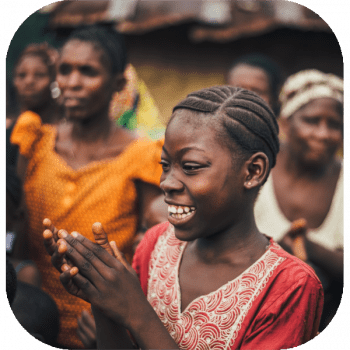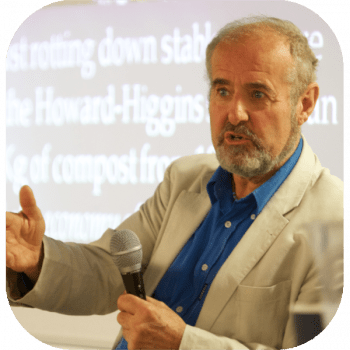UK Veg crops affected by excessive weather
Vegetable crops are threatened due to excessive wet weather. Oil seed rape production is down 38% Olive oil prices increase 108% due to excessive drought
Enable Villages in South Western Zimbabwe to have the first class HH-2 waste management system along with the HH-3 DRY Sanitation System.



Enable Villages in South Western Zimbabwe to have the first-class HH-2 waste management system along with the HH-3 DRY Sanitation System. The first consideration is to stop the risk of polluting the groundwater from sanitation runoff. The HH-3 DRY toilet system completely prevents this and enables the HH-2 waste management system to operate smoothly in its fertiliser making capacity which requires fresh pure water with which to do so. The wastes from village households and community kitchens is all collected and processed through the HH-2 system which generates the right fungi and bacteria to quickly process these wastes. The end product HH-4 is then applied to the land and pest and disease-free growing can commence.
Sir Albert Howard achieved exactly this 100 years ago and the Good Gardeners are bringing back the science to spearhead its spread across Africa. HH-2: Feeding the World (taken from an article on the Mother and Child Foundation website) Two of the most commonly recurring issues in the developing world are nutrition and sanitation – eating well and keeping water supplies clean, in other words.
With this in mind, the Mother and Child Foundation is pleased to support the work of Good Gardeners International and its HH-2 Horticultural System. Their ongoing work across Uganda is fully supported by The Institute of Brain Chemistry.
The HH-2 system is all about recycling waste and growing nutritious food. It digests all manner of organic material, taking just 90 days for raw waste to be converted to optimum fertiliser/soil conditioner. This tackles the nutritional side of the equation with a winning combination of ingenuity, efficiency and simplicity. Applied to the ground without digging or ploughing, it achieves maximum carbon sequestration, and no nitrogen is lost from the earth in the form of runoff. The HH-3 DRY toilet system addresses the sanitation issue. It does away with the need for pit latrines, which leak into and therefore pollute water sources. The HH-3 DRY toilet system also produces waste which can also be easily processed into compost via the HH-2 equipment which is cholera-rat- and fly-proof.

Richard Higgins
Richard is a leading soil remediation consultant.
“Many schools in Uganda find it difficult to provide students with a balanced, nutritional diet. This is because they can’t afford the chemicals to keep off the pests that attack their vegetables. As a result, essential greens are often lacking in their diet. This is a result of soil infertility.”
“The HH-2 addresses this problem and replenishes the soil with a high state of fertility so that no chemicals are required to successfully grow increased vegetable crops. The children can then grow up with a fully nutritious diet which will enable their full cognitive development,” says Richard.
The HH-2 food growing system has no moving parts. It has been designed for maximum ease of use and self-sufficiency and requires a one trained operator who doesn’t need to be an experienced farmer. HH-2 and HH-3 together protect drinking water, operate safe waste disposal and produce a rich fertiliser/soil conditioner (known as HH-4). The combined system represents a potential revolution in food production throughout Uganda and beyond.
“There is an urgency to address worldwide food security and waste issues”
“Due to climate change and exhausted soils, food growing is getting more difficult. Our HH-2 Food Security System is a game-changer.” says Richard.
Mr. and Mrs. Hlalakuhle – working with the Good Gardeners
Gladstone is the Managing Director/Project Consultant at Endev Consulting Limited).
He is a Prince2 qualified development practitioner optimistic and of multi-disciplinary with over 30 years of practical experience in project management and management training in a range of countries in Africa. His expertise is in the fields of agriculture, farm management, environment and rural development. He is experienced in project and programme management consultancy, M&E procedures, soil and water conservation, environmental assessments and protection services, farming services, social services and social care services.
Mrs. Conciliah Hlalakuhle
(Administrative Director at Endev Consulting Limited)
Conciliah is a qualified Registered Nurse and administrator who demonstrates a courteous and friendly approach to working with communities in all development sectors. She has worked with the National Health Services (NHS) UK for over 10 years, and possesses extensive people management, networking and administrative skills.



Watch Richard explain the situation in Zimbabwe and The Good Gardeners’ aims to help.
Further Developments
According to the Report from the UN Office for the Coordination of Humanitarian Affairs (2016), Zimbabwe has, over the last decade, experienced a number of unprecedented economic, environmental and political shocks and stresses, many of which will have long-lasting impacts. Poverty, food insecurity, malnutrition, and environmental degradation are serious challenges in Zimbabwe, particularly in rural areas, and will continue to be challenging due to the effects of climate change. The macroeconomic situation that Zimbabwe is currently facing gravely exacerbates the problems associated with crop production.
Although there are significant differences in poverty rates among the ten provinces, it is most common and prevalent in the low rainfall areas of Matabeleland North and Matabeleland South provinces, falling within agro-ecological regions IV and V, receiving annual rainfall ranging between 400-650mm. Inyathi Communal Area is the proposed project area for the Good Gardeners Project. It lies within Bubi District of Matabeleland province of Zimbabwe and is administered by Bubi Rural District Council. The poverty prevalence is 88%. Project Justification Below is the overview of the severity needs in the project area. The households are particularly vulnerable to food insecurity due to their agroecological conditions. This situation is further aggravated by the poor and erratic rains in the last decade. The district has received less than 60 percent of its long term average rainfall.
The poor performance of the rainfall over the years has resulted in a significant decrease in the area planted. This has also been exacerbated by cumulative livestock deaths and population increase. Malnutrition rate is 5.7 percent, the highest ever reached in the past 15 years and 5 percent above the WHO cut-off point. The Severe Acute Malnutrition (SAM) rate for children aged 6-59 months was 2.1 percent which is slightly above the 2 percent threshold for emergency response in Zimbabwe. While the unavailability of potable water predisposes the community to water-borne diseases. Malnutrition also makes the community more vulnerable to all infectious agents. Drought and food insecurity has negatively impacted on children’s well-being and access to basic social services. In particular, it has affected their access to education 1 | Page s and diminished their learning opportunities in multiple ways.(e.g. increased student absenteeism, poor concentration in class, and hunger-related fainting at school ). This has also been exacerbated by the shortage of drinking water. On the other hand, livelihood pressures on families has resulted in parents not being able to meet the cost of education, leading to drop out of children and involvement in other social activities in order to earn a living.
There is a lack of water for both domestic, agricultural and livestock watering purposes. There is a high risk of water insecurity and this also compromises the viability of general gardening projects, sanitation and hygiene. This is why the HH-2 and HH-3 systems are essential. The relative severity of the need within the project area justifies the placement of the Good Gardeners waste management and sanitation systems HH-2 and HH-3 respectively These systems with the training given by the Good Gardeners team will suffice for all the objectives of the project and will be establishedfor way into the future. Objectives Households that have suffered significant crop write-offs and livestock losses should be the focus of the project interventions. Due to food insecurity, children, pregnant and lactating women’s access to diversified The Good Gardeners International project of composting with the HH-2 will minimize moisture losses both in the system of composting and in the soil. This ensures that the crops get the benefit of all the available moisture. This in conjunction with the installation of the HH-3 DRY toilets will ensure the available water resources are prevented from becoming contaminated by effluent runoff. The project aim is to increase the soil fertility to such a degree that it will achieve natural pest and disease resistance which will automatically increase the crop yield. No chemical fertilisers or pesticides are required with this system of agriculture and will thus save the community all the associated costs.
Target groups
Rural households of Village 4, in Ward 11 of Inyathi Communal Area, Bubi District, and communities in Matabeleland North Province of Zimbabwe.
Expected outputs
● The project will contribute to the following:
● Reduced food insecurity
● Improved soil fertility resulting in increased crop yields
● improved soil and water conservation
● Reduce malnutrition
● Reduced mortality rates due to improved health and nutrition
● Improved active participation of children in schools and their concentration
● Critical hygiene and sanitation practices improved.
● Reduction in the risk of water and hygiene-related diseases.
Project Location and Background
The project will be undertaken at Inyathi Communal Area in Bubi District, Zimbabwe. This is 75 kilometres north of the city of Bulawayo. The proposed specific area of attention is the households in Village 4 in Ward 11. Project sustainability The training, awareness-raising and capacity-building element of the project has in-built sustainability beyond the life of the project. All stakeholders will understand better the project concept and the benefits of the HH-2, HH-3 systems. Networking relationships with a variety of different partners will be invaluable for the implementation and sustainability of this project. Direct engagement of beneficiaries in training and implementation will generate community ownership of the initiative during and lasting into the future.
Project Location and Background
The project will be undertaken at Inyathi Communal Area in Bubi District, Zimbabwe. This is 75 kilometres north of the city of Bulawayo. The proposed specific area of attention is the households in Village 4 in Ward 11. Project sustainability: The training, awareness-raising and capacity-building element of the project has in-built sustainability beyond the life of the project. All stakeholders will understand better the project concept and the benefits of the HH-2, HH-3 and HH-4 systems. Networking relationships with a variety of different partners will be invaluable for the implementation and sustainability of this project. Direct engagement of beneficiaries in training and implementation will generate community ownership of the initiative during and well beyond the project’s life.
Project Management
The money will be raised and the project will be coordinated by Good Gardeners International, implemented by Endev Consulting Limited, in conjunction with the communities, and the Department of Agriculture. Endev Consulting Limited will manage the day-to-day implementation of the project.
Monitoring and Evaluation
At the outset indicators, systems and guidelines for monitoring and evaluation which will include both qualitative and quantitative information will be established. The indicators will be set up through consultation with all the stakeholders. Project monitoring and evaluation will be participatory and ongoing. Reports will be submitted to the Donor. A log frame will be created to keep track of progress, impact and to control activities. Linkages/Potential Partners: Good Gardeners International, Endev Consulting Limited, Donors and local stakeholder networks active in agriculture and sustainable livelihoods will be partners in the project. For the purposes of the donor and linkages amongst the potential partners, Memoranda of Understanding shall be entered into to streamline and agree on the working arrangements. The key components of the approach to this partnership will focus on: A common understanding of the framework, culture, values, and approach of partner organizations and a clear understanding of individual each organisation’s roles and responsibilities regarding the division of labour. A shared common vision and purpose that builds trust and openness and recognizes the value and contribution of all members.
Creating a working relationship that ensures understanding and an acceptance of differences (e.g., values, ways of working) and respect for the contributions of all partners Creating an atmosphere of learning, investing in partner skills and knowledge. This may involve monitoring and evaluation aimed at improving members’ performance. Investing in partner skills, knowledge, and competence needs to be highly valued within the partnership. Effective communication at all levels within the partnership and within partner organizations, sharing and accessing all knowledge and information. Management practices and resources required to achieve the partnership goals and to complement the intended purpose of the partnership. Ensuring members demonstrate accountability for the actions they take and ownership of delivery of the objectives and targets for which they are responsible.
Terms and Conditions
Upon approval of a proposal and budget, the project will receive the funding and necessary resources for the implementation of the assignment, in accordance with the Donor rules and regulations for contracting service providers.
History & Inception
The Stiching Peters Primary School, a Dutch based Non-governmental Organization who role is to address the challenges of education and agriculture in Eastern Uganda was founded in 2005 with the goodwill and passion of Joan Machora and Peter Kruidenie. It lies in the Jinja region of Eastern Uganda. In 2008 the funding of the school was drastically reduced due to the European financial crisis that affected the Dutch partners. The school started admitting both orphans, whose education is free, and students who are able to pay fees so that the operational costs of the school would be met
Total Budget for this project:
£99,806.30

Vegetable crops are threatened due to excessive wet weather. Oil seed rape production is down 38% Olive oil prices increase 108% due to excessive drought
New findings from Michael Mosely. A BBC broadcast on the Today programme It is now found that previous information on cooking with Olive oil is
As one cannot write to the BBC Unexpected programme we are posting here some News you know and some Science you don’t. No University or
| Cookie | Duration | Description |
|---|---|---|
| cookielawinfo-checkbox-advertisement | 1 year | The cookie is set by GDPR cookie consent to record the user consent for the cookies in the category "Advertisement". |
| cookielawinfo-checkbox-analytics | 11 months | This cookie is set by GDPR Cookie Consent plugin. The cookie is used to store the user consent for the cookies in the category "Analytics". |
| cookielawinfo-checkbox-functional | 11 months | The cookie is set by GDPR cookie consent to record the user consent for the cookies in the category "Functional". |
| cookielawinfo-checkbox-necessary | 11 months | This cookie is set by GDPR Cookie Consent plugin. The cookies is used to store the user consent for the cookies in the category "Necessary". |
| cookielawinfo-checkbox-others | 11 months | This cookie is set by GDPR Cookie Consent plugin. The cookie is used to store the user consent for the cookies in the category "Other. |
| cookielawinfo-checkbox-performance | 11 months | This cookie is set by GDPR Cookie Consent plugin. The cookie is used to store the user consent for the cookies in the category "Performance". |
| elementor | never | This cookie is used by the website's WordPress theme. It allows the website owner to implement or change the website's content in real-time. |
| viewed_cookie_policy | 11 months | The cookie is set by the GDPR Cookie Consent plugin and is used to store whether or not user has consented to the use of cookies. It does not store any personal data. |
| Cookie | Duration | Description |
|---|---|---|
| mailchimp_landing_site | 1 month | The cookie is set by the email marketing service MailChimp. |
| Cookie | Duration | Description |
|---|---|---|
| _ga | 2 years | This cookie is installed by Google Analytics. The cookie is used to calculate visitor, session, campaign data and keep track of site usage for the site's analytics report. The cookies store information anonymously and assign a randomly generated number to identify unique visitors. |
| _gat_gtag_UA_203491877_1 | 1 minute | This cookie is set by Google and is used to distinguish users. |
| _gat_UA-203491877-1 | 1 minute | This is a pattern type cookie set by Google Analytics, where the pattern element on the name contains the unique identity number of the account or website it relates to. It appears to be a variation of the _gat cookie which is used to limit the amount of data recorded by Google on high traffic volume websites. |
| _gid | 1 day | This cookie is installed by Google Analytics. The cookie is used to store information of how visitors use a website and helps in creating an analytics report of how the website is doing. The data collected including the number visitors, the source where they have come from, and the pages visted in an anonymous form. |
| CONSENT | 16 years 4 months | These cookies are set via embedded youtube-videos. They register anonymous statistical data on for example how many times the video is displayed and what settings are used for playback.No sensitive data is collected unless you log in to your google account, in that case your choices are linked with your account, for example if you click “like” on a video. |
| Cookie | Duration | Description |
|---|---|---|
| IDE | 1 year 24 days | Used by Google DoubleClick and stores information about how the user uses the website and any other advertisement before visiting the website. This is used to present users with ads that are relevant to them according to the user profile. |
| test_cookie | 15 minutes | This cookie is set by doubleclick.net. The purpose of the cookie is to determine if the user's browser supports cookies. |
| VISITOR_INFO1_LIVE | 5 months 27 days | This cookie is set by Youtube. Used to track the information of the embedded YouTube videos on a website. |
| YSC | session | This cookies is set by Youtube and is used to track the views of embedded videos. |
| yt-remote-connected-devices | never | These cookies are set via embedded youtube-videos. |
| yt-remote-device-id | never | These cookies are set via embedded youtube-videos. |
| yt.innertube::nextId | never | These cookies are set via embedded youtube-videos. |
| yt.innertube::requests | never | These cookies are set via embedded youtube-videos. |
| Cookie | Duration | Description |
|---|---|---|
| cookies.js | session | No description available. |
| wp_woocommerce_session_7ef5404579515d013e9154529f907a7f | 2 days | No description |